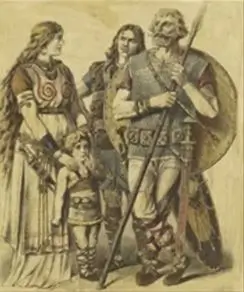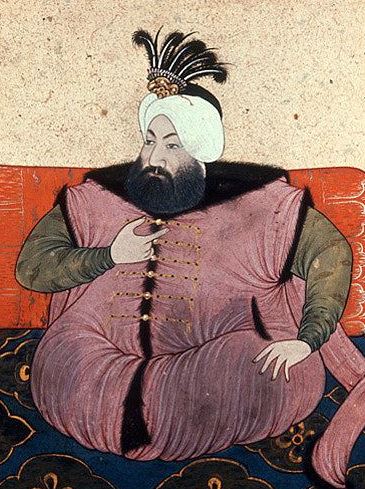The Angle tribe, one of the key Germanic tribes of ancient Europe, played a significant role in shaping the history and culture of the British Isles. Their migration and settlement in what is now modern-day England laid the foundation for the development of the Anglo-Saxon identity and the English language. This article explores the origins, migration, culture, and legacy of the Angle tribe, offering an informative and engaging look at this influential group.
Origins of the Angle Tribe
The Angles originated from the Jutland Peninsula, in what is now modern-day Denmark and northern Germany. They were part of the larger Germanic group of tribes that inhabited northern Europe during the early centuries AD.
- Geographical Origins: The Angles, along with other Germanic tribes such as the Saxons and Jutes, lived in the coastal and inland areas of the Jutland Peninsula. Their homeland was characterized by dense forests, rivers, and a harsh climate that influenced their way of life.
- Name and Identity: The name “Angle” is believed to be derived from the region of Angeln in present-day Schleswig-Holstein, Germany. The exact origin of the name is uncertain, but it may refer to the shape of the land or a distinctive feature of their homeland.
Migration to Britain
The most significant chapter in the history of the Angle tribe began in the 5th century AD, when they, along with other Germanic tribes, began migrating to the British Isles. This migration was a pivotal moment in British history, leading to the establishment of the Anglo-Saxon kingdoms.
- Reasons for Migration: Several factors contributed to the migration of the Angles and other Germanic tribes to Britain. These included pressure from other tribes, economic challenges, and the decline of the Roman Empire, which had left Britain vulnerable to invasion.
- Settling in Britain: The Angles primarily settled in the eastern and central parts of Britain, in regions that would later become known as East Anglia, Mercia, and Northumbria. Their settlements led to the displacement of the native Celtic populations and the establishment of new cultural and political structures.
- Formation of Anglo-Saxon Kingdoms: The Angle tribe, along with the Saxons and Jutes, formed the foundation of the Anglo-Saxon kingdoms that would dominate Britain for centuries. The kingdoms of East Anglia, Mercia, and Northumbria were particularly influenced by the Angles.
Culture and Society of the Angles
The Angle tribe, like other Germanic peoples, had a rich and complex culture that included unique social structures, religious beliefs, and artistic traditions.
- Social Structure: The Angle society was organized into clans or kinship groups, each led by a chieftain. Loyalty to the clan and chieftain was a central aspect of Angle life. Their society was hierarchical, with a clear distinction between nobles, free men, and slaves.
- Religion and Beliefs: Before their conversion to Christianity, the Angles practiced a form of Germanic paganism. They worshipped a pantheon of gods, including Woden (Odin), Thunor (Thor), and Tiw (Tyr). Religious practices included sacrifices, rituals, and the veneration of sacred groves and springs.
- Language and Literature: The Angles spoke Old English, a Germanic language that would evolve into the English we know today. They contributed to the rich oral tradition of Anglo-Saxon poetry, including epic tales like “Beowulf,” which reflects the values and beliefs of the time.
The Legacy of the Angles
The legacy of the Angle tribe is most evident in the cultural and linguistic foundations they laid for England and the English-speaking world.
- Anglo-Saxon Identity: The term “Anglo-Saxon” itself is derived from the Angles and the Saxons, reflecting the combined cultural influence of these tribes. The Anglo-Saxon period is a defining era in English history, marking the transition from Roman Britain to the medieval English kingdom.
- Language Influence: The Old English language, heavily influenced by the Angles, forms the basis of modern English. Many common English words and place names have their roots in the language and settlements of the Angles.
- Historical Impact: The Angle tribe’s migration and settlement in Britain were key factors in the shaping of English history. Their influence extended beyond the formation of the Anglo-Saxon kingdoms, impacting the legal, political, and cultural development of England.Angle tribe
The Angle tribe, with their migration from the Jutland Peninsula to the British Isles, played a crucial role in the formation of what would become England. Their influence on the language, culture, and history of Britain is profound, with lasting effects that continue to be felt today. Understanding the history of the Angles offers valuable insights into the early foundations of the English nation and the development of the Anglo-Saxon identity that would shape the future of the British Isles. Through their journey and legacy, the Angles have left an indelible mark on the history of Europe.




